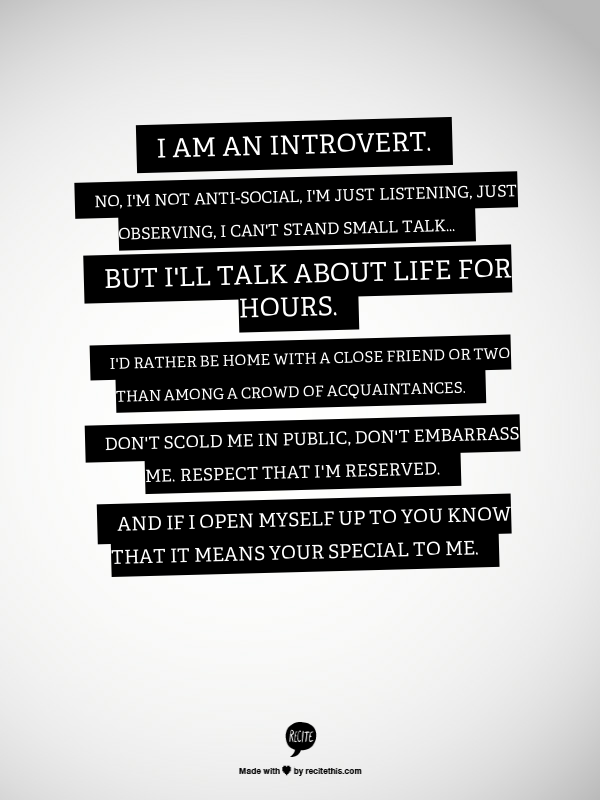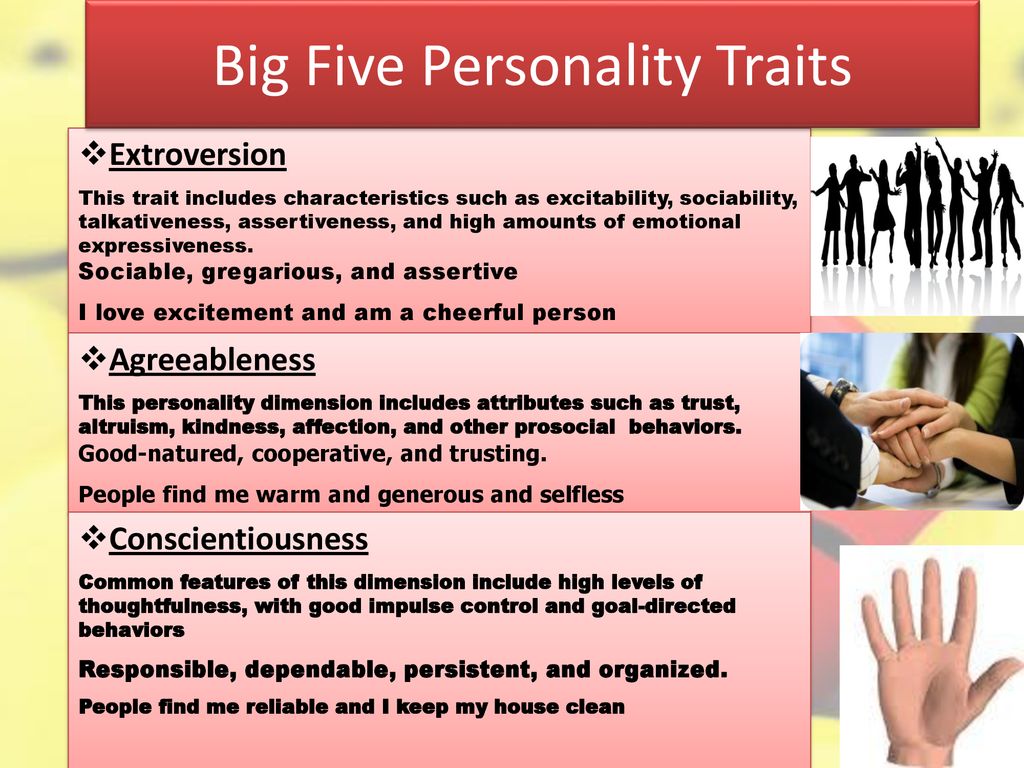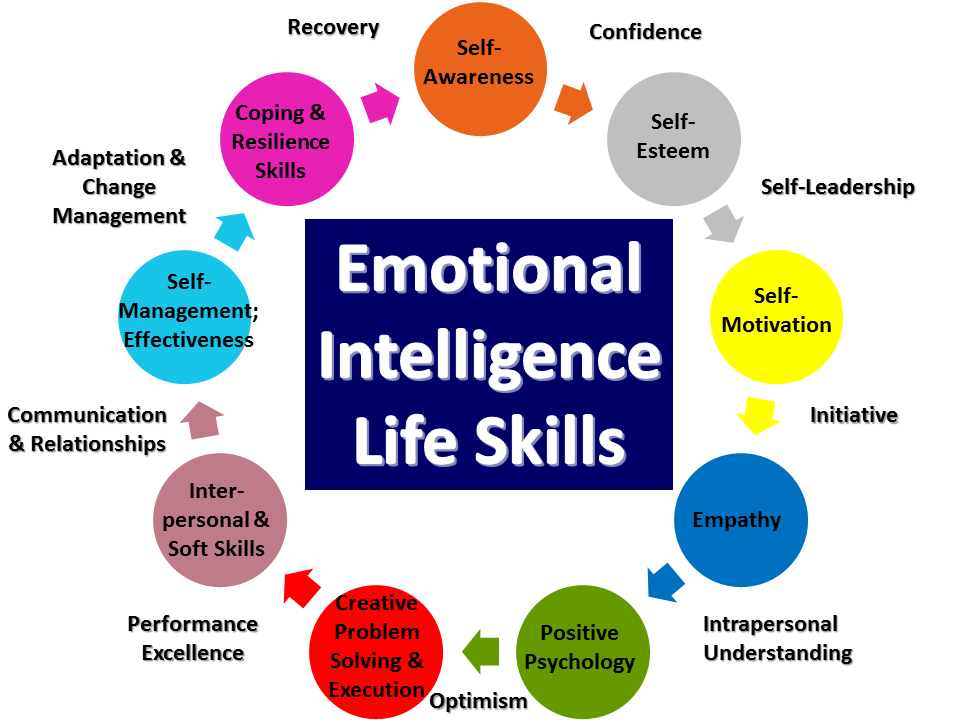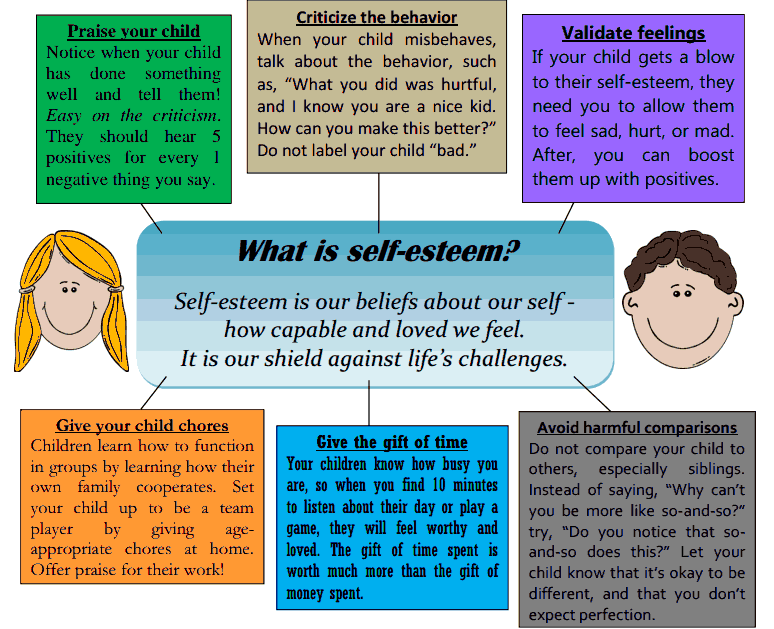Stuck in a job you hate
How To Survive A Job You Hate (But Can't Leave – Yet)
Image: Francisco Galarza
There were mornings when I had to pep-talk myself into getting out of bed.
There were commutes when I did an extra lap of the roundabout, just to delay my arrival at the office by ten more seconds.
Days of clock watching, wondering how it was possible that only four minutes had passed since I last glanced up.
Nights of lying awake, running circles in my head, desperately trying to think of a way out.
I planned and daydreamed endlessly of the moment when I'd put my things away at my desk and stand up from that chair for the very last time. But that moment was a long way off.
I was stuck, inert, in a torturous state of suspension.
I hated where I was, but I couldn't leave.
Sound familiar?
What do you do if you're not ready to make your shift, but the day-to-day grind is driving you up the wall?
Here are some strategies from real-life career changers on how they endured (and in some cases actually learned to enjoy) the jobs they weren't ready to leave.
1. Share the load
If I asked you what you hated about your work, I bet you'd be able to reel off a long list of things.
- You feel undervalued.
- You can't stand your boss.
- Your skills aren't being used properly.
- You're just a cog in a machine.
- The office politics are killing you.
But, underneath all of those explicit items on your list, there's something else going on, too.
You're being a big fat faker.
And you hate it.
You get up every day and force yourself into your commute. You walk into the office and you feel heavy and tired before you've even sat down. You have to push yourself to get anything done. And on top of all of that… you smile anyway, don't you?
You say a cheery "Hello!" to your colleagues. When your boss asks who'd like to take on that desperately boring project that you just know will be a train wreck before it's even started, you put your hand up, right?
Your whole day is a series of little lies. And that's not who you are.
And that's not who you are.
But you started doing it in small ways a long time ago: papering over the cracks. And as the cracks have slowly grown, so has the amount of time you're pasting a smile over the top of disinterest and frustration. It's been an insidious creep of inauthenticity, and it's eating you from the inside out.
This inauthenticity is at the core of most people's frustration with their work. It's what turns "I don't love my job" into "I cannot stand this life any longer".
Maybe you can't be entirely open about how you're feeling, all the time, but you can probably share the load with someone at work: an understanding colleague or a supportive boss.
Who could you share how you're feeling with? What would allow you to be authentic, find some relief and start creating solutions, even in a small way?
"I had a group of of people around me, and we used to moan about work all the time. That was just a part of day-to-day life.
"And then there was a team leader I worked with. He was about the same age as me, but further ahead on the career ladder in the company. I decided to trust him and I confided in him about how I felt. And he said he was thinking about the same thing; he completely understood how I felt.
He was about the same age as me, but further ahead on the career ladder in the company. I decided to trust him and I confided in him about how I felt. And he said he was thinking about the same thing; he completely understood how I felt.
"I didn't expect that from him; it was very moving and reassuring, and it gave me the validation I needed to know that how I was feeling was OK." – Richard (founder of Careershifters)
2. Reduce your hours
One of the most important principles we teach at Careershifters is that new ideas and opportunities come from new experiences.
And when you're working full time, getting time and headspace to have those new experiences is a real stretch.
So, although it might feel like a pipe dream, asking to reduce your hours can be an incredibly effective way of accessing more time and energy without compromising your security.
This isn't an option for everyone, but it's well worth considering. Many people are gloriously surprised by the freedom and support they can get if they just gather the courage to ask.
Maybe you'll get a no. Maybe it's uncomfortable. Maybe you're worried about the consequences.
But maybe you have more options than you think, especially if you start with a small reduction in hours.
And the impact can be incredible:
"Mainly it helped me unravel a large part of my identity from the job. My story when I met people then became: 'I work a few days a week at a corporate job, however, what I'm trying to do is this other, more interesting thing'.
"It's helped me gain perspective and to be less fearful, knowing I would survive if I left the job as I'm already OK with far less money. It's increased my physical and psychological energy, for sure. I have more space to pursue other things, and a feeling of already having one foot out of the door.
"It also meant that outside of the 9–5 office role I could mix with people who worked differently. For example, I started to learn Spanish, and in the course there happened to be a bunch of women who were all entrepreneurs.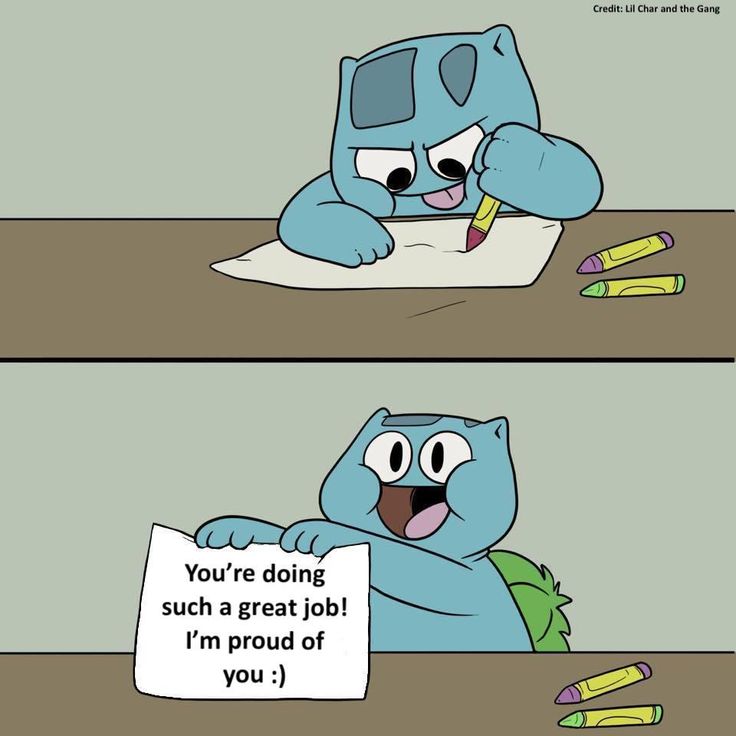
"Locked in an office all week, being too tired in the evenings or weekends to do much else, meant that I wasn't even mixing with anyone who wasn't doing the same corporate grind, getting no exposure to fresh ideas.
"I did the hours reduction in quick stages – half a day, then a full day, now my hours are in the 20s and I want to reduce them further soon." – Kirsty (Career Change Launch Pad participant)
3. Zoom out
You've been working on this spreadsheet (or sitting in this meeting, or trying to make a sale to a nightmare prospect) for ever, and you just can't bring yourself to care any more.
The day-to-day reality of most jobs isn't deeply inspiring and exciting. There will always be tasks and things to do that feel like hard work.
But there's something bigger at play, too.
No matter how mundane your job might feel, your work is in service of something that matters.
And connecting your immediate task with that bigger 'something' can bring a little extra motivation and enjoyment to what you do.
Find a way to get connected with the 'why' of what you're working for.
Maybe sitting on the phone with a disgruntled client isn't your favourite thing to do. But once you remember that you have the power to turn someone's bad day into something to smile about, it's a lot easier to throw yourself into the conversation.
Or perhaps crunching the numbers for the last big project you worked on feels like a nightmare task. But when you think of the impact that the information could make on the number of people you could help next time around, it won't feel so worthless.
Develop your own way to remind yourself of your bigger 'why'.
"I work for a well-known tyre company. Making and selling tyres isn't a very inspiring or meaningful cause, and I talk a lot about how I want to find a career where my day-to-day job has a real impact on people.
"One day I had a call with a client who let me know how much my work was helping them, and I realised that I can make an impact on the world, even if it's just with the people I get to work with right now.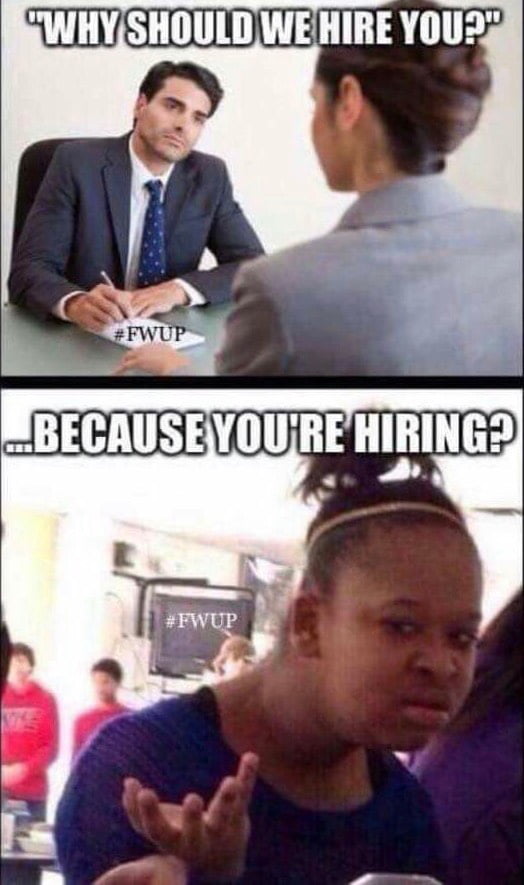
"I wrote that client's name on an index card and I keep it stuck to the corner of my computer screen. When things feel like they couldn't get any less inspiring, it's a great reminder that even the boring, tough stuff can be worthwhile." – Dean (customer service manager)
4. Choose your superpower
If you're feeling as though your skills are underused and undervalued, or as though your life has become a Groundhog-Day-esque circus of sameness, it's time to turn up the volume.
Pick something specific that you're interested in, and take it on as a challenge. Maybe the one part of your job you enjoy is designing and making pitches to potential clients.
Focus on it. Read everything you can find about public speaking and presentation skills. Take a free online course in your spare time. Do whatever you need to do to get really, really good at the part of your job you enjoy the most, and bring it into your day as much as you can.
No clear need for a presentation at this team meeting? Ask your boss if you can do one anyway. Find clients and potential partners you wouldn't normally pitch to, and pitch to them.
Find clients and potential partners you wouldn't normally pitch to, and pitch to them.
It feels amazing to grow and develop and be really, really excellent at something, and people will notice.
The better you get, the more likely you are to be asked to do more of it. And the more you do, the better you get.
Plus, when you're finally ready to make your shift into a new career, you'll have an extra string to your bow to impress potential new employers, business partners or clients.
"I had a think about what I was doing and realised there was one part of the job I actually really enjoyed: organising and promoting events and doing photography. So I started squashing in the parts I don't particularly enjoy (course marketing, admin, finance stuff), and realised that they didn't take me that much time if I worked really quickly.
"That then left me more time for the other stuff, so I decided to refresh our photo library and have been able to organise new photoshoots. I've also been more proactive on the events side by proposing new events to run with a colleague that I'd previously worked with.
I've also been more proactive on the events side by proposing new events to run with a colleague that I'd previously worked with.
"No-one has seemed to notice what I'm doing, and it makes the work day less of a pain." – Miranda (Career Change Launch Pad participant)
5. Take on a secret side-project (at work)
What makes a work day feel good?
When you come home with a smile on your face, what was it that put that smile there?
Figure out what makes a difference to you, and turn it into a secret project to get more of it into every day.
Love making people happy? Set yourself a challenge to do three random acts of kindness every day. Find five minutes to help your colleague with her project when she looks like she's stressed out, and make sure you leave her laughing. Secretly put a bunch of flowers in the middle of the table in the meeting room. Have an impromptu dance party in the kitchen.
Feel like you're trapped behind your computer all the time, and missing human connection? Turn conversations into a game: how many new people can you meet at work today? Do you know the caretaker by name? What does that woman on the other side of the office actually do?
"It sounds mad, but making an effort to be extra nice to my colleagues really helped.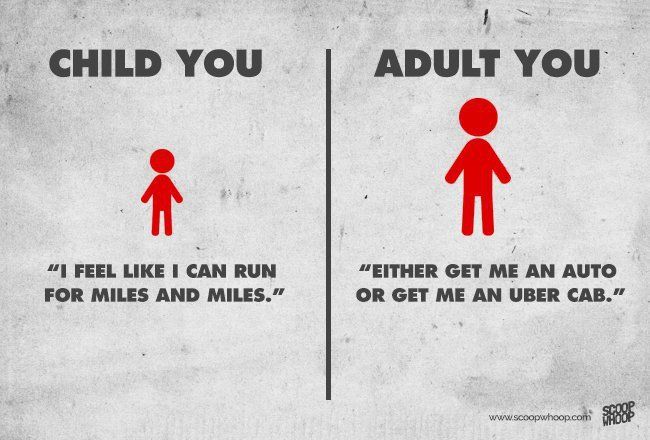
"Making someone a cup of tea, asking how their weekend went, helping someone out with a problem, etc.: all of that helped take the focus away from my awful job and my awful boss!" – Corinna (Career Change Launch Pad participant)
6. Take on a secret side-project (at home)
Just because you're not able to leave your job now doesn't mean you can't start working on your shift right away.
And having a secret side-hustle can work wonders for your mood and motivation.
Whether it's something like our Career Change Launch Pad, starting your business, or simply learning a new skill, nothing feels quite as good as making progress on your shift.
Why?
Because half the despair of feeling stuck in a job you don't enjoy comes from feeling like there's no way out. You wouldn't know where to go, even if you did quit today. Or you have an idea of what you'd like to do, but you don't have the experience you need to be taken seriously.
By building up experience, clarity, and an escape plan, you're de-risking your situation. You're not going to make the mistake of a reactive shift. You're not going to find yourself stuck in the same place a year from now.
You're not going to make the mistake of a reactive shift. You're not going to find yourself stuck in the same place a year from now.
And the confidence and energy this can provide you with is priceless in your day-to-day.
Even if it's just an hour a week, choose something to go to work on and turn it into your secret project.
"I decided I was going to give myself six months to learn how to code. It wasn't my dream job, but I knew it was a useful skill, and something that could potentially give me a lot of freedom to travel and work on my own terms while I figured out my 'real' next steps. I signed up to two courses: one online and one in-person at a local adult learning centre.
"It was so much fun. In quiet moments at work or in boring meetings, instead of thinking about how terrible my job was, I was planning my next website or solving a programming problem in my head.
"Having something different and enjoyable to focus on made all the difference. " – Erica (operations manager, NHS)
" – Erica (operations manager, NHS)
7. Shift your focus
"What you focus on, grows."
It sounds like New Age, unrealistic hype, but it's worth paying attention to if you can't seem to escape the feeling that everything is doomed and there's no way out.
Here's the thing: the more convinced you are of the idea that your situation is awful, the more you'll find evidence to back it up.
"See? He's making another cup of coffee. Clearly everyone here is as disillusioned as me, and he can't be pulling his weight because he's always by the kettle."
"See? They're making me do all the name tags for the event. Menial work. They have no appreciation for my skills."
Your life becomes a day-to-day exercise in proving yourself right.
And this is what the inside of your head starts to sound like, all the time: self-righteous and hard done by, not because that's the kind of person you are, but because of where your gaze is fixed. It's even worse if you allow that stuff to come out of your mouth.
It's even worse if you allow that stuff to come out of your mouth.
What you focus on, grows.
Maybe that colleague of yours is avoiding work by making 14 cups of coffee a day. They're procrastinating and hiding out, AND they could be exactly the person you can share how you're feeling with, because you know they'll understand.
Maybe you do have to print and cut up three hundred name tags this afternoon, AND you get to do it with a colleague you don't know that well. It's a boring task that doesn't use your best skills, AND it's a great chance to get to know someone new and give your giant brain a break.
However eye-rollingly Pollyanna it might sound, nothing is doomed and fundamentally awful. There's something to be celebrated in everything, if you look hard enough.
"For me, it really is a matter of focusing on the positive and being grateful for as much as possible.
"Is your job close to home, and thus your commute short? Be grateful! Do you work for a highly reputable firm that will look good on a CV regardless of your personal experiences there? Be grateful! Do you love your co-workers, but hate your boss? Be grateful – after all, you could be in a situation where you hate all of them! Ha!
"I know it sounds trite, but if you are truly 'stuck' there, you have to find a way to make the best of it. And I personally know of no better way to do that than to focus on the positive and on what you can control." – Cathy (programme manager)
And I personally know of no better way to do that than to focus on the positive and on what you can control." – Cathy (programme manager)
8. Take the lead
One of the uncomfortable truths that nobody likes to hear is also one of the most empowering things you can consider: nobody owes you anything.
Nobody's here to argue that it's not wonderful when your boss has your back and your team is working like a well-oiled machine, and there is always, always paper in the printer.
But it's not your boss's job to have your life work. And if the IT guy is always late, there's probably a reason why.
Waiting for someone else to fix things (while simultaneously being miserable because your life isn't how you want it to be) is not a useful course of action.
What could you take on to have things be better at work? How could you lead the charge towards a more fun working environment, or a more efficient email system, or a flexible working policy?
If you're feeling unfulfilled and unhappy in your career, mustering the motivation to take the lead on something probably isn't going to feel like the obvious and enjoyable thing to do.
But if it matters to you, then it's up to you to change it.
And if it matters to you, it probably matters to other people, too.
Think about the one thing that could make the biggest positive impact in your workday, and let your boss know you'd like to work on improving it.
It could be as simple as finding a way to share all the positive feedback you get from clients with the whole team, as soon as it comes in.
It might mean finally gathering the courage to negotiate a day of working from home, on an experimental basis.
Or it could be something bigger and more complex – something you'd need to re-structure your day to implement.
Whatever it is, step up to the plate. Find the people you'd need on your team. Take the reins.
"In my business development role I was tired of chasing after corporate accounts and doing things I didn't find fulfilling.
"However, when I took a step back, I thought about what was missing from my role and what I'd like to do more of, and considered ways to bring this into my role.
"I wanted to network with people whose work I found interesting and I wanted my work to have more social impact. So, I started networking with local third sector organisations and community groups and finding ways that we could collaborate with them to provide services that helped a different client group.
"Not only did I start enjoying my existing job much more, it also gave me the kind of experience I wanted to have on my CV. This was a total game changer when it came to looking for my next job, as it gave me clarity on what I really wanted and experiences that I could talk passionately about with potential employers." – Matt (Career Change Launch Pad participant)
9. Fill your tank
Working in a job that doesn't excite you is draining. It takes energy to get yourself to work in the morning, to motivate yourself throughout the day, to work those extra hours on the task you've been dreading for weeks. And when you're coming home exhausted and empty at the end of the day, the thought of doing anything else can feel impossible.
But with all that energy going out every day, it's vital to find ways to get some energy coming back in.
Everyone has something that fills their tank.
It might be exercise, or art, or spending time with friends. It might be getting out into nature on a regular basis. There's something out there that leaves you feeling energised and refreshed, every time.
And even if the thought of making and taking time for it feels impossible and tiring, that 'something' can be your lifeline.
Exhaustion and frustration are signs that you're undernourished, physically and emotionally. And you need to feel nourished to make it through this in-between stage of a career change.
Assign time for yourself. Protect it fiercely. Do what you need to do to refill your tank.
"Monday and Thursday evenings are pure 'me' time.
"My husband takes the kids, and I go running in the park with a friend or shut myself away for an evening with my yoga and my books.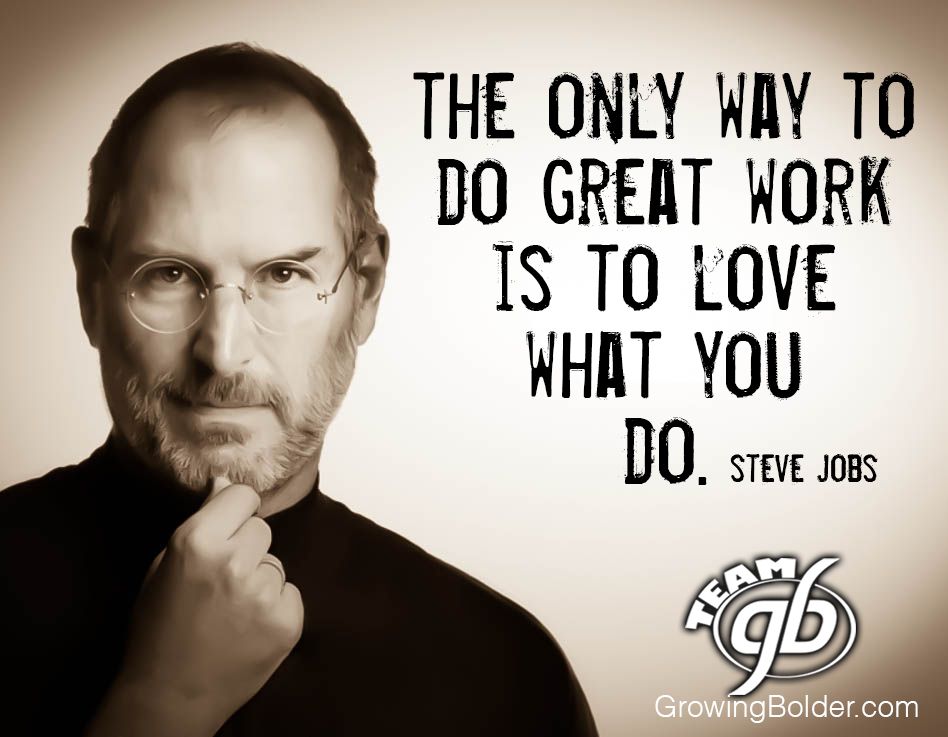 I used to feel like I couldn't find the time or the energy to do anything outside of work, but since I've been doing this, everything's got easier.
I used to feel like I couldn't find the time or the energy to do anything outside of work, but since I've been doing this, everything's got easier.
"I have quiet time with myself inside my head to check in and think a little, and it's easier to get through the week knowing that I've got a treat on the way." – Diane (civil servant)
A little extra goes a long way
Not all of these strategies are going to be suitable (or even attractive) for you. And it's very unlikely you'll be able to put all of them into practice.
But choose one or two to play with over the next month. Experiment. Throw yourself into the process of exploring – what eases the stress and the boredom? Is it possible you could not just survive, but thrive at work, in this in-between career-change stage?
You matter. Your well-being matters. Your ability to feel strong and grounded and forward-facing as you move toward fulfilling work, matters.
Which of these strategies could you start using this week? Let me know in the comments below!
5 Paralyzing Reasons You’re Stuck in a Job You Hate (And How to Get Out of it) | by Dr.
 Eugene K. Choi | The StartupPhoto by Cristian Newman on Unsplash
Eugene K. Choi | The StartupPhoto by Cristian Newman on UnsplashDo you find yourself wishing there was a way to get out of your current job so you can find something better?
The hardest part is figuring out what to do about it.
It’s not like you didn’t try different things already. It’s hard enough to balance the time and energy to make big changes in your life when you already have so many responsibilities to take care of.
So here you are, feeling stuck and unfulfilled.
I know what you’re thinking.
If only you could somehow get out of the grind of daily life.
I was in the same boat, but I’ve figured out how to position myself to do more work that matters to me and still survive and put food on the table.
So how do you get out of a job you hate?
Looking back to some of the lowest points in my life, I realized there were five crippling reasons why you stay stuck in an unfulfilling job in the first place.
“Would you tell me, please, which way I ought to go from here?”
“That depends a good deal on where you want to get to.
” said the Cat.
“I don’t much care where-” said Alice.
“Then it doesn’t matter which way you go,” said the Cat
-Lewis Carroll, Alice in Wonderland
If money wasn’t a problem for you anymore, would you know where you want to take your life?
If the answer is no, you still won’t find life as fulfilling as you’d want it to be.
Most people are so focused on how bad their circumstances are rather than figuring out where it is they actually want to go in the first place.
Here’s the bottom line.
If you don’t keep your focus on the destination, you’ll always end up drifting to somewhere you don’t want to be.
But when deciding where you want to steer your life, how do we know we chose the right direction?
The biggest trap most people fall into happens if the endpoint they set for themselves is only about the money. They may become successful in financial terms, but it doesn’t make them feel fulfilled.
So what’s my point?
Living out your why should always be your ultimate destination.
Your why is a purpose, belief, or cause that matters to you so deeply it’s something you are willing to protect and stand up for at all costs and this is what you should base your biggest career goals on. If you don’t, you’ll transition and still end up feeling stuck.
When you connect with your why, something amazing begins to happen. You start finding the time to do the work you need to change your life. You also begin to change the lives of others as an added benefit.
Being busy doesn’t always mean you are being productive.
You could be busy playing video games.
You could be busy comparing your life with other’s lives on social media.
You could be busy streaming Netflix.
We’re all busy, but are we busy in the right ways?
Are you busy connecting with what’s most important to you, becoming the person you want to be, and making the impact you want to make?
So how do you find more time to do the things that matter to you most?
It’s not about doing more. It’s about making changes to things you’re already doing.
It’s about making changes to things you’re already doing.
You’ve probably heard these ideas before, but it works. All the time.
Cut out television, cut out social media, stay up late and get up early.
It’s easier said than done and it will be hard in the beginning, but as you create the new habit, I’ve found you start to come up with some of your best ideas and realize you were capable of things you never thought you were before.
In the beginning, when you try this out, expect to be stuck and expect to be bored. Being bored is ok, but you’ll find after the first few times, you start to see things that weren’t there before. Good ideas may pop up and solutions you haven’t thought of before might all of a sudden click in your mind.
The older you get and the more experiences you have, you might find yourself a little less hopeful at achieving the life you want. Accomplishing your big goals was not as easy as you thought it would be.
You’ve failed enough to know what you thought was possible is more likely to be impossible. Even worse, some of these experiences may have been traumatic for you.
Even worse, some of these experiences may have been traumatic for you.
When you fail and put your tail between your legs, you do the next best thing. You settle. You settle for what you can get. When this happens, you will never be able to get yourself out of your own situation.
“The first step towards getting somewhere is to decide you’re not going to stay where you are”
-John Pierpont “J.P.” Morgan
I heard an author share about how he always gets asked the question, “How do you become a great writer?”
His response was “That’s easy, you just need to be willing to be a bad writer first.”
But what does that mean?
If you want to succeed at anything, first get good at failing at it.
You may not know me, but I’m a professional failure. It’s because of all these failures, I’ve learned how to find success as a pharmacist, humanitarian, writer, and filmmaker.
I remember the first time my wife and I decided to start managing our finances better, I didn’t want to look at the numbers because I knew we were probably spending way more money than we should.
This was when I discovered the importance of budgeting.
Budgeting is knowing where your money goes rather than wondering where it went.”
-Dave Ramsey
After we worked our numbers, set a plan for our money and executed that plan, we were able to get rid of 75% of our debt within 3 years.
Managing my money better was the biggest reason I was able to quit my job, go on a cross country road trip for two months, and pursue my dreams of becoming a filmmaker full time for a whole year.
If you budget well and know where your money is going, it frees up your mind from always thinking about how to survive. This gives you some space to develop a plan on how to make your transition.
If at the end of the month, you realize you spent much more than you expected on eating out, you can plan to eat at cheaper restaurants moving forward and maybe stop ordering the $12 dollar cocktail every time you go out for a nice dinner.
If you’re spending $50 a month for a gym membership you opened up in January and never use it, it may be time to cancel it Until you find yourself exercising more regularly.
If you’re a good defensive driver who’s never gotten into an accident, maybe it’s time to increase your car insurance deductible to $1000 from a $500 one so you can save some money on that monthly premium.
The point is to use every creative measure to keep more money in your pocket so you can invest in the changes you want to make in your life.
When I finally set out to make the big career transition I wanted to make, my biggest fear was to run out of money. This fear came true and I went broke with only $5 in the bank account, but it honestly wasn’t as bad as I pictured it would be.
I thought I would have an emotional meltdown and end up homeless on the streets, but I just thought to myself that it’s time to go back to a day job temporarily until I recover enough to take my next transitional steps.
So that’s what I did. Simple as that.
We have a natural tendency to let the fears of a worst-case scenario prevent us from taking action towards the transition we are so desperate for.
These fears jab at your insecurities, your failures, and your hurts to prevent you from moving towards the life you were meant to live.
So how do you effectively punch back these fears and refuse to be taken down?
If you find yourself always stuck in your own head trash and negative pessimistic thoughts, I want to share with you six words that have changed my life.
Fear is selfish, courage is selfless.
-Danny Iny
I now work for this man I quoted. He’s built a multimillion-dollar business from scratch in three years by helping people make more impact and money and now my job and lifestyle are to help other people find their own success as well.
Courage only comes when what you are doing is for something bigger than just yourself.
So maybe you can start by asking yourself, who do you want to serve? What problems are you and others experiencing that makes you angry enough to do something about it?
I had a coworker who use to be a pilot and loved flying. He worked as a pharmacy technician for 20 years looking forward to retirement. He even owned his own plane and it was sitting at the local airport.
He worked as a pharmacy technician for 20 years looking forward to retirement. He even owned his own plane and it was sitting at the local airport.
He was two years away from retirement but told me because he was starting to have issues with his vision, the doctor told him he cannot fly anymore.
He looked at me and said:
“Don’t wait until retirement to do everything you ever wanted because when you retire, your body won’t permit you to do those things anymore”
When I quit my high paying job to go on a cross country road trip with my wife for two months, it was proof to myself I was able to quit a day job that wasn’t fulfilling me.
My friend Jason was also able to quit his high paying job at a fortune 500 financial company and launched his own successful film production company.
My friend Steven quit his job as an engineer and ended up a creator of one of the most popular shows on Buzzfeed, Worth It.
My friend Jen quit her job working for corporate to become a makeup artist and now has over a million followers on YouTube and empowers millions of young women.
And I have story after story that serves as proof change is possible.
Anyone can transition as long as they put in the work.
There is no one size fits all approach. You’re story and circumstances are unique, which is the reason why only you can truly figure out how to get yourself out.
So get yourself to the point where you have a good plan. Take action. Make courageous mistakes. Learn from them. Then Repeat.
Keep moving forward because what the world needs most is the power of your life fully lived.
Now is a time more than ever where your skills, talents, and potential are desperately needed.
If you’ve been becoming more aware that you’ve been feeling stuck, then you might be wondering how you can begin to tap into the part of yourself that’s extraordinary.
The part of you that you know deep down can make a great impact on the world.
If that’s you, then learn how neuroscience can significantly improve your decision making, critical thinking, and creative skills in my free in-depth training, How to Activate Your Brain’s Superpowers: A science-backed approach to discover your passions, find your purpose and transform your life
This story is published in The Startup, Medium’s largest entrepreneurship publication followed by 290,182+ people.

What if I hate my job? Psychologist answers
Reason and feelings
Adriana Imzh
December 8, 2016 15:15
Afisha Daily continues to ask psychotherapist Adriana Imzh questions about relationships with oneself, people around and the world. This time we figure out what to do if you hate your job, but depend on it financially.
The situation is a stalemate, of course. But let's try to figure it out.
Surprisingly, attitudes towards work also have a cultural connotation. In different cultures, work is treated differently: in Spain, in Israel, in the USA and in other countries, many people love their work and go to it with pleasure, rather upset if there is no work.
It has to do with goals and values.
In Russia, children are rarely explained why work is needed and why it is valuable. Why it is good to work, for example, as a baker or a carpenter. Much more often, children are oriented either simply to financial success, or to some positions associated with power or social prestige: bosses, doctors, financiers, lawyers. Therefore, adults often suffer from the fact that their expectations and goals are not realized in work. In countries where it is simply important that you work and benefit people, there are fewer people who are disappointed with work.
Therefore, adults often suffer from the fact that their expectations and goals are not realized in work. In countries where it is simply important that you work and benefit people, there are fewer people who are disappointed with work.
It is important to ask yourself: why do I hate my job? I don't like the people I communicate with? I don't like what I'm doing? Did I expect that I would lead a different lifestyle at my age? I came into this profession to do one thing, but I have to do something completely different?
And it seems important to me to start with the fact that many of us lack respect for our work. Am I doing something, is it not a criminal offense and is generally aimed at improving life (mine or other people's)? I'm done. It's already work. Maybe not the best, but valuable. At least for me. Yes, there are certainly people who earn more than me and live more interesting, richer, better, more comfortable. But my work is important. If I don't respect him, what can I expect from others?
The second problem is relationships between people. Quite often, relations in teams are not very pleasant, there are many negative assessments, competition, sluggish conflicts can smolder for years. Corporate activity and team building are most often perceived with aggression and resistance - there is no desire to recognize colleagues, imbue them and interact. But this is a very important point - people spend many hours in a team, and at least one friendly colleague with whom you can have lunch and chat near the kettle significantly relieves psychologically.
Quite often, relations in teams are not very pleasant, there are many negative assessments, competition, sluggish conflicts can smolder for years. Corporate activity and team building are most often perceived with aggression and resistance - there is no desire to recognize colleagues, imbue them and interact. But this is a very important point - people spend many hours in a team, and at least one friendly colleague with whom you can have lunch and chat near the kettle significantly relieves psychologically.
Sometimes there is a lack of someone in the collectives who could be friendly to everyone, organize activities, hikes, events - just such that everyone would have fun. You can become such a person (if you want, of course).
If not at all, methods of psychological relief help: draw comics about your crazy serpentarium or write stories, publish a wall newspaper - even if only for yourself, support colleagues in battles against each other, mentally placing bets on who will win. Mental distancing from the process of unpleasant actions or communications significantly reduces the level of irritation.
Mental distancing from the process of unpleasant actions or communications significantly reduces the level of irritation.
When there is a discrepancy between what I do and what I would like to do, in some cases it helps to go to school - either to improve my qualifications or to get a new profession. This, firstly, gives hope for a change in the current situation, and secondly, it allows you to do something new and interesting. When in painting classes someone says: “Lord, how tired I am of working as a physics teacher!” - there will surely be someone who will sympathize and support, while in the school teacher's room it is much more likely to hear - "We are all tired, and nothing - we are silent."
Several times I have had to work with blue-collar workers with very good leadership and organizational skills. But the team pulled them back - and they needed my help and support so that they decided to study and move on - to more complex, well-paid and interesting positions.
It is not easy to answer the question “What are you doing there, studying? Do you think you're smarter than us?" find the correct answer or refuse to go drinking with the guys on Friday night because you have an exam tomorrow. Nevertheless, it was study that helped people at least say to themselves: “Yes, I am smarter than them and think more about my tomorrow, so it is important for me to pass this exam.”
It is very important to ask for more support from friends and family. Of course, it happens that things are not very good with their work either - some of my clients said with amazement that they, in principle, did not meet people who like their work. One of the girls in the group was amazed to find that she was the only one there who did not like her work - in her childhood and among her family members, work was a horror story that required sacrifice and suffering. For her, finding people who love their work and go to it with pleasure was already a powerful incentive to start doing something to change their situation, because if an interesting job is not a utopia, but a real thing, then it makes sense to look for it.
Nevertheless, if I manage to convey to my relatives that I do not like my job, but now I have to go to it and therefore I need additional support, this can also help a lot. When another person next to you says: “I understand that you don’t like it, but you keep the whole family afloat” or “I sympathize with you, I hope the crisis in your area will end soon and you can find something new,” live becomes more fun.
In conclusion, I would like to say that in most cases, working with a psychologist helps to increase well-being. Often, employees in Russia are underpaid, their salaries have not been indexed for years, colleagues do not even try to develop and somehow improve the current situation, and those people who begin to defend themselves, show initiative, move forward and learn new things quickly gain a strategic advantage. In a number of cases, it helped my clients to simply ask for a revision of salaries and duties and not be afraid to speak about their needs not in the format of blackmail, but in the format of defending themselves.
One of the scariest things people usually say to themselves is “Where are we going to go?”. Sometimes there are times when there is nowhere to go. During such periods, it is important to work so that at the end of them the direction for self-destruction still appears.
tell your friends
tags
MGUmoneyworkcomfortpsychology
people
Ekaterina Mikhailova
How should I be? I hate my job!
How should I be? I …
Jesus, who else hates their job? How do you live?
#Self-isolation: before and after
-
It is easier for men to find a well-paid job! And we work...
494 answers
-
I don't want to work. Never
8,496 responses
-
How long have you been/are looking for a job?
4 973 answers
-
Why should a woman cook if she also works?!
2 336 answers
-
Should I look for a job with savings for 10 years ahead?
2,879 answers
-
Why is it shameful not to work?
4 360 answers
-
Should the state pay pensions to the self-employed?
328 responses
-
Why is it so hard to find a job now?
2001 answer
-
To come to the interview in jeans and a T-shirt?
340 answers
-
Why do many men want their wives to work?
2 297 responses
33 responses
Last - Go to
#1
#2
#3
Must like this work, Author. I will say this... This area of life is no less important than family and relationships.
I will say this... This area of life is no less important than family and relationships.
#4
#5
9000 #6 9000 9000
#7
Irina
I was also kicked out on indefinite leave due to quarantine. But if there are any tasks, I will ask for payment. And you can't do that? May 28, 2020 Yes, it is necessary to say goodbye to her through the court so that the leadership receives two years of probation, and not just leave.
It is better to dive into a hydroponic bath from wet snow ten times a day in a greenhouse than to do so.
And now everyone did it. Everyone was sent to unpaid. I spent 2 months eating what I had saved up.
I just don't have anyone behind me. I am essentially alone. There are parents, but ... they don't care about my problems. Yes, they don't owe me anything.
It's just true that sometimes thoughts come to get into a noose, because I can't find a comfortable place for you, without constant nervous tension. I can't even eat at work, that's for sure. I just grab cookies. Because I can't eat in discomfort.
You might think that this is the position of the victim.
But I don't know how to get out of this circle.
#9,0003
#10
LIVE PAYS IS
Comfortes only salaries ...
#11
Karinka
When it is impossible to quit due to financial difficulties, you should start by looking for alternative ways: find a side job, try to look for what options you have if you want to quit. I would say, while you are looking, endure this work, but if no one is going to pay for it, then holding on to it with a death grip is somehow not logical. Search.
I would say, while you are looking, endure this work, but if no one is going to pay for it, then holding on to it with a death grip is somehow not logical. Search.
#12
#13
But he did one thing, they immediately threw another one at you, and then they pushed the third one away. Call that one, agree with that one. Call someone else. And it grows like a snowball. And they brazenly ask - will you do it today?
#14
#15
You just wrote... and you know, yes, it resonated with me inside. I fear being treated badly for pushing my limits. I once quit with wild harassment from the boss. It's been a few days of hell. She thought that I betrayed her and framed her, since she decided to leave.
I once quit with wild harassment from the boss. It's been a few days of hell. She thought that I betrayed her and framed her, since she decided to leave.
And honestly, I am again afraid of this pressure when you show your character roughly speaking. I am emotionally very vulnerable, I can even cry.
Damn, it's embarrassing to admit that I'm weak. 9May 28, 2020 I quit my job two months ago and am now unemployed. The martyr insisted on this. Although the desire to live appeared, the negative became less.
#17
#18
Are you from a small town? What is your specialty, where can you work? It's just better to immediately point out such things in order to get advice. Here everyone is crying that they were kicked out on vacation without pay, but for example, in my environment there is no such thing, everyone either continues to work legally as before, because. the field of activity allows, or they switched to remote work and receive their salary too.
the field of activity allows, or they switched to remote work and receive their salary too.
I grew up in a small town, but then I moved to a big town and... got lost. I'm all alone here, all my friends stayed there. A couple of friends from a previous job are, so, to chat. I'm not tenacious, not active, I can't lie - you can hear it in your voice right away. Myamlya is shorter, although I can learn and deal with programs for a short time. A month later, I usually do everything normally, without jambs.
Technical specialty, but the qualification has been lost. Didn't have a degree. I realized that I do not have enough brains for this direction. I love to work on the computer. Maybe funny, but I love tables, all sorts of calculations. True, because of this, the vision was greatly planted.
I would be happy to work remotely.
#19
#20
Are you really afraid of losing your job? Yes, it is necessary to say goodbye to her through the court so that the leadership receives two years of probation, and not just leave.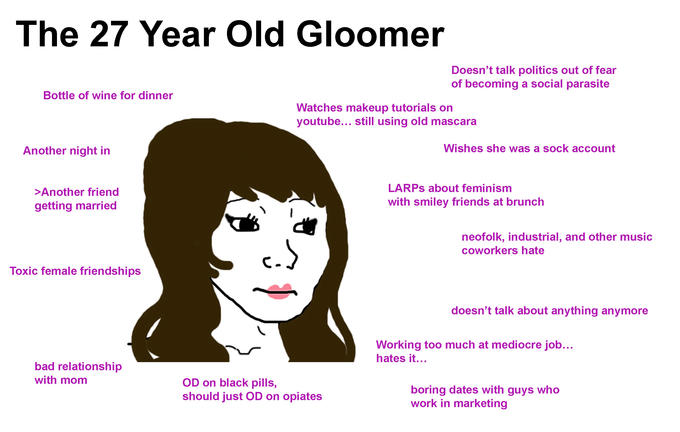
It is better to dive into a hydroponic bath from wet snow ten times a day in a greenhouse than to do so.
#21
Sonya Blue
You just wrote... and you know, yes, it resonated with me inside. I fear being treated badly for pushing my limits. I once quit with wild harassment from the boss. It's been a few days of hell. She thought that I betrayed her and framed her, since she decided to leave.
And honestly, I am again afraid of this pressure when you show your character roughly speaking. I am emotionally very vulnerable, I can even cry.
Damn, it's embarrassing to admit that I'm weak.
#22
Woman.ru experts
Vladimir Titarenko
Fitness nutritionist
141 answers
Tokar Darya Anatolyevna
Fitness trainer
38 answers
Maxim Sorokin
Practicing psychologist
1 022
Shulgina Olga Viktorovna
Family psychologist
26 answers
Elena Gerba
family psychologist
77 answers
Dvortsov Kirill Olegovich
Gynecologist-reproductologist
12 answers
Ivanova Svetlana
Coach
75 answers
Maria Burlakova
Psychologist
331 answers
Osipova Ksenia Andreevna
Psychologist
40 answers
Kremenetskaya Maria
Speech therapist - defectologist
32 answers
June 19, 2020, 10:42 am I may have a mortgage.
#24
#25
#26
Unreliable stories
-
I am infuriated with her children and grandchildren ...
1 257 answers
-
The man immediately warned that all property was recorded on children
925 answers
-
Such a salary - I do not want to work
628 answers
-
A lie 22 years long. How to destroy?
902 answers
-
Husband left, 2 months of depression... How will you cope if you are left all alone?
194 replies
#28
#29
9000 #30
Author
I also hate mine because of the workaholic boss, who always finds fault with any x not, looks out for every jamb under a magnifying glass, but I can’t leave yet because I have a mortgage.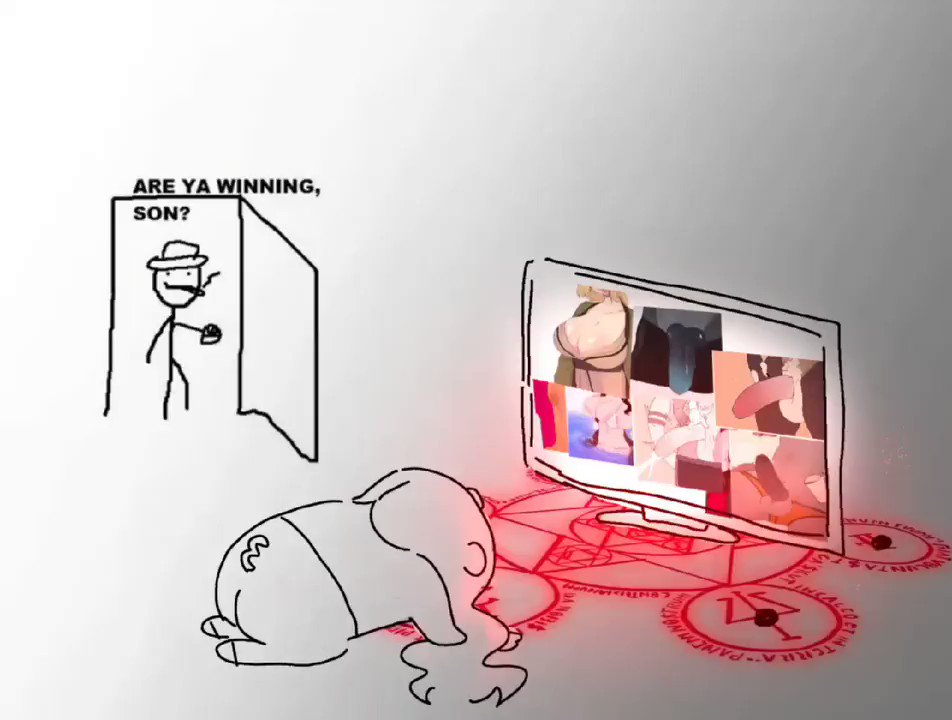
#31
Guest
Author, Are you from a small town? What is your specialty, where can you work? It's just better to immediately point out such things in order to get advice. Here everyone is crying that they were kicked out on vacation without pay, but for example, in my environment there is no such thing, everyone either continues to work legally as before, because. the field of activity allows, or they switched to remote work and receive their salary too.
#32
#33
Guest
, in principle, I like, but I do not like it at all at all my boss (she finds fault with little things very often, she also calls home often after a working day), and the salary is generally full . . I'm a medical laboratory assistant, I do tests, I work five days a week. But I'm getting fewer girls at the front desk! They have a salary of 1,600 rubles a day, and I have 1,000 .. Although I have been working in this fucking organization for 10 years .. As for the increase, I was approached a year ago, the authorities said that our volumes are not so large to pay you normally (there are three of us person in the laboratory, counting the boss-doctor), well, "there are such salaries everywhere." Yeah, but except for us, everyone else gets it normally. Yes, when it’s empty, and when it’s busy at work, that sometimes there’s no time to eat. I’ve already written a statement twice (because of the boss, she’s often not quite adequate with us), but they dissuaded me, they said, when you find it better, then we’ll let you go (like they’re worried, but-but). But when should I look for a job if I work from nine to five? She was also afraid to quit, because she has a three-year-old child, and her husband does not bring money (hardly enough to rent an apartment from his "money").
. I'm a medical laboratory assistant, I do tests, I work five days a week. But I'm getting fewer girls at the front desk! They have a salary of 1,600 rubles a day, and I have 1,000 .. Although I have been working in this fucking organization for 10 years .. As for the increase, I was approached a year ago, the authorities said that our volumes are not so large to pay you normally (there are three of us person in the laboratory, counting the boss-doctor), well, "there are such salaries everywhere." Yeah, but except for us, everyone else gets it normally. Yes, when it’s empty, and when it’s busy at work, that sometimes there’s no time to eat. I’ve already written a statement twice (because of the boss, she’s often not quite adequate with us), but they dissuaded me, they said, when you find it better, then we’ll let you go (like they’re worried, but-but). But when should I look for a job if I work from nine to five? She was also afraid to quit, because she has a three-year-old child, and her husband does not bring money (hardly enough to rent an apartment from his "money").





